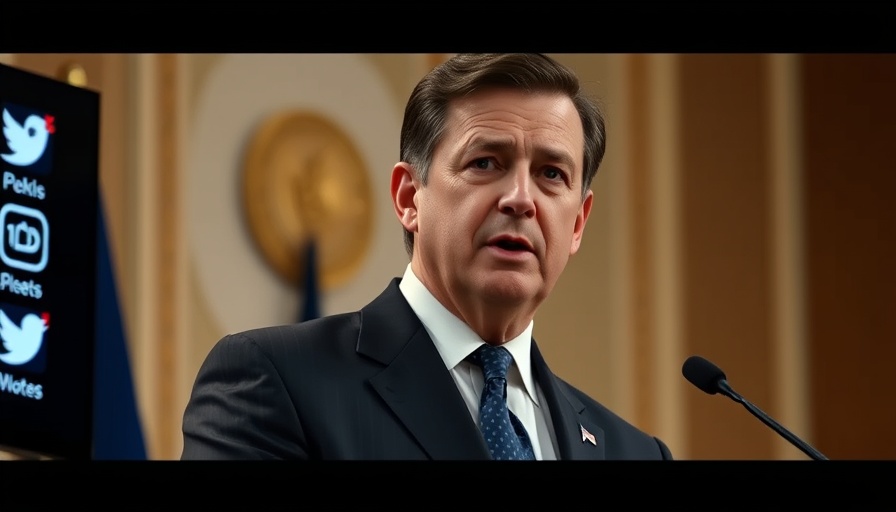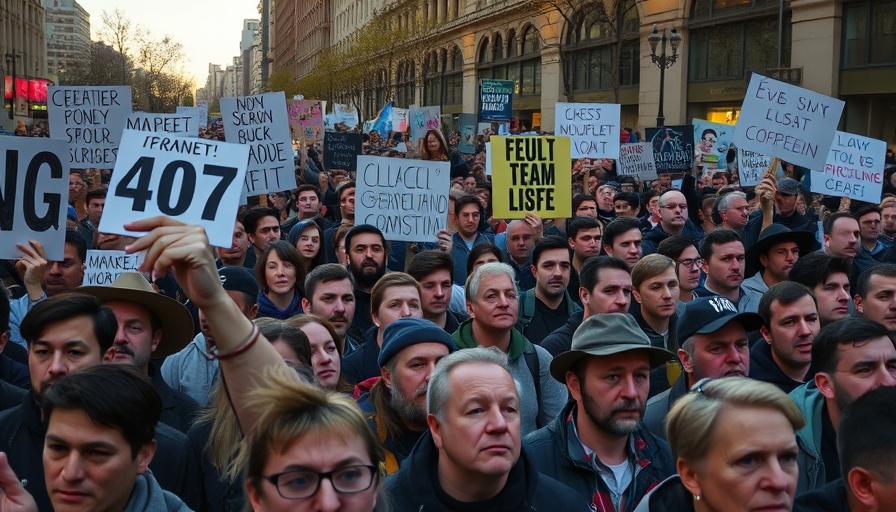
Amidst Political Turmoil, Jo’burg Mayor Dada Morero Holds His Ground
As South African politics shift dramatically ahead of the upcoming general elections, Dada Morero, the mayor of Johannesburg, finds himself in a contentious landscape marked by opposing forces and coalition instability. Despite growing challenges, including a potential no-confidence motion linked to his leadership, Morero remains resolute in his position. This steadfastness reflects not only individual determination but also the broader struggle of the African National Congress (ANC) as it navigates the intricacies of coalition governance.
The landscape of Johannesburg’s governance is emblematic of a wider trend in South Africa, where political realignments are forcing party lines to blur. With key players like the Democratic Alliance (DA) and the Economic Freedom Fighters (EFF) actively vying for power, Morero represents a vital faction that underscores the ANC's efforts to maintain its influence in urban centers. Notably, Morero’s tenure as mayor is being scrutinized against the backdrop of public sector reform and service delivery issues that have precipitated dissatisfaction among voters.
Political Coalition Dynamics: A Double-Edged Sword
The current situation encapsulates the complexities of a coalition government—a mechanism that the GNU (Government of National Unity) often champions. Here, the mayor's struggle reveals the inherent tension between cooperation and conflict within the coalition, where party loyalty can come second to political expediency. With the ANC traditionally viewed as the heavyweight in South African politics, its coalition partners are beginning to challenge this dominance. John Steenhuisen of the DA has seized this opportunity, calling for greater transparency and accountability within coalitions.
Cyril Ramaphosa's leadership is undeniably intertwined with Morero's political fate, as observers scrutinize the president's ability to unify fragmented parties under the GNU. The ANC’s performance in upcoming 2024 general elections could hinge on the party's success in dealing with internal factions and the public's perception of their governance.
What's at Stake: Voter Turnout and Electoral Reform
The upcoming elections are set against a backdrop of growing political apathy, particularly among the youth demographic. With youth unemployment rampant and issues like land reform and economic policy dominating discourse, ensuring high voter turnout will be critical for Morero and the ANC. Electoral reform proposals, aimed at enhancing voter accessibility and strengthening democratic processes, are at the fore, as calls for constitutional amendments intensify—reflective of a public craving for genuine representation.
Furthermore, amid this political landscape, solutions to pressing societal issues—income inequality, gender-based violence, and access to education—are consistently discussed as imperatives for unifying the electorate and driving participation. Voter turnout can significantly impact the outcome for coalitions, particularly as parties like the EFF gain traction among disaffected voters.
Future Predictions: Navigating Challenges Ahead
Looking ahead, the trajectory of Morero's leadership will largely depend on how effectively he can manage the tensions surrounding his role while advocating for critical issues that resonate with the electorate. Should he survive the impending no-confidence motion, the impacts of his continued leadership could reshape Johannesburg's political landscape and serve as a blueprint for governance across South Africa.
Moreover, as political dynamics evolve globally, the influence of foreign policy initiatives, such as South Africa's participation in BRICS and the potential for diplomatic relations with neighboring countries, will play a crucial role in shaping public sentiment. The increased focus on economic partnerships promises to be a decisive factor in how Johannesburg’s public and private sectors align for mutual benefit.
Opportunities for Governance and Civic Engagement
Ultimately, Morero's journey is reflective of deeper currents within South African society—one that demands accountability, transparency, and adaptability. His understanding of the intricate balance between leading a diverse constituency and navigating coalition politics may create pathways for innovative governance solutions in the process. What's clear is that the city’s administration cannot thrive on the past alone; it demands an approach rooted in accountability, community engagement, and proactive policy-making tailored to meet the urgent youthful aspirations.
As we await further developments, it is imperative to engage actively in the electoral process and demand better leadership that aligns with the diverse needs of South Africa's populace.
 Add Row
Add Row  Add
Add 




Write A Comment